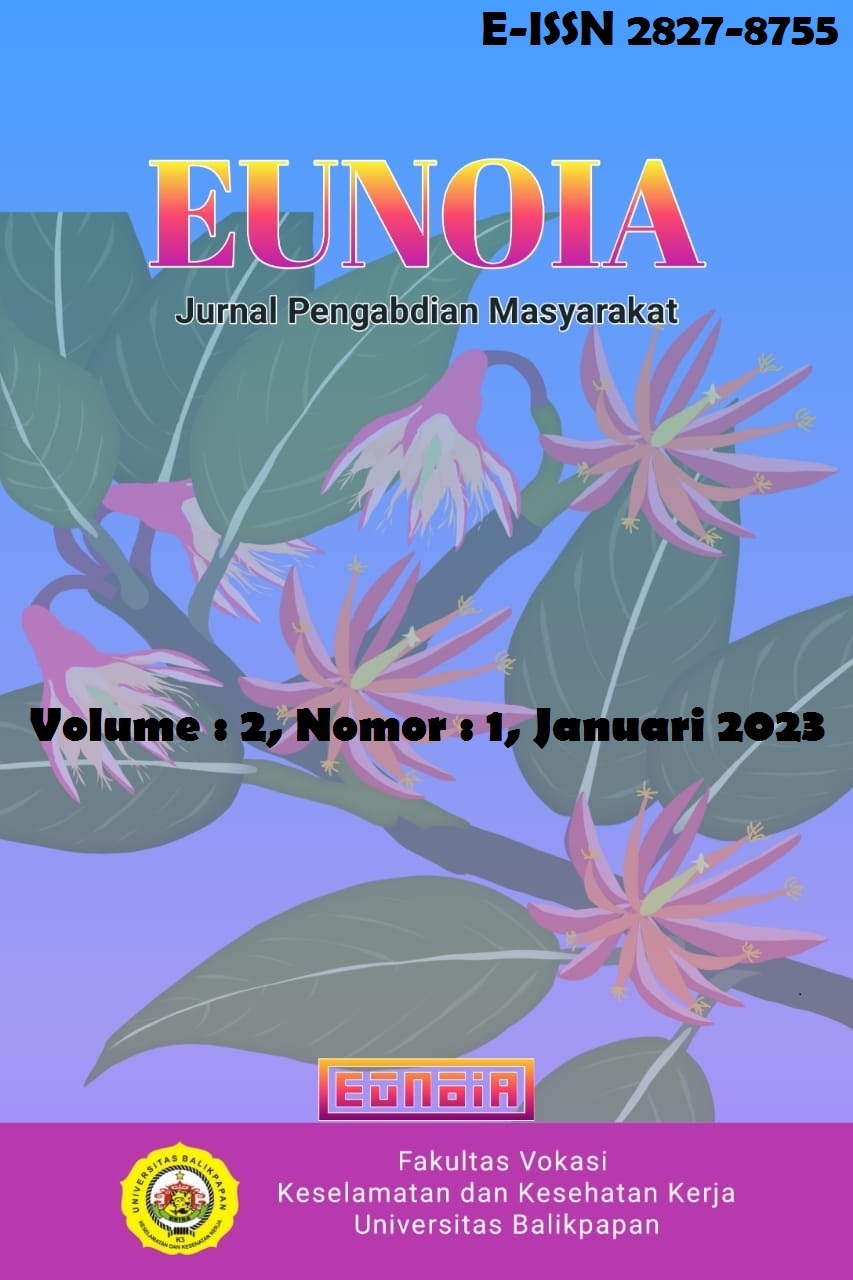WASTE MANAGEMENT AT THE FINAL PROCESSING PLACE MANGGAR
Keywords:
TPA Manggar, garbage, communityAbstract
TPA Manggar is a facility owned by the Balikpapan City Government which stands on an area of 27.1 hectares on Jalan Proklamasi RT. 36. On January 13, 2012, TPA Manggar was officially operational and until now it continues to beautify itself so that it is not just a garbage collection site. The purpose of carrying out the activity. are as follows: Improving the quality and continuity of student activities at the University of Balikpapan in the community in order to create a strong, independent and prosperous society. Increase the understanding of lecturers, students, the community, and partners about sustainable development at the Manggar Waste Landfill in Balikpapan. Promoting the Balikpapan University program as a vehicle for solving problems based on local wisdom and potential as well as partnerships with the community, government and other stakeholders. Improving the quality and breadth of partnership networks in community empowerment through the activities of Balikpapan University students. TPA Manggar has an important function as a place for final disposal of waste in the city of Balikpapan, besides that TPA Manggar has functions from an economic and academic perspective such as tourism development as well as an educational place. This is a potential for TPA Manggar.
Downloads
Published
How to Cite
Issue
Section
License
Authors who publish with this journal agree to the following terms:
- Authors retain copyright and grant the journal right of first publication with the work simultaneously licensed under a Creative Commons Attribution License that allows others to share the work with an acknowledgment of the work's authorship and initial publication in this journal.
- Authors are able to enter into separate, additional contractual arrangements for the non-exclusive distribution of the journal's published version of the work (e.g., post it to an institutional repository or publish it in a book), with an acknowledgment of its initial publication in this journal.
- Authors are permitted and encouraged to post their work online (e.g., in institutional repositories or on their website) prior to and during the submission process, as it can lead to productive exchanges, as well as earlier and greater citation of published work (See The Effect of Open Access).





